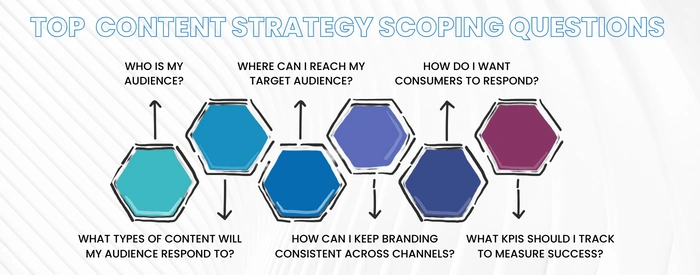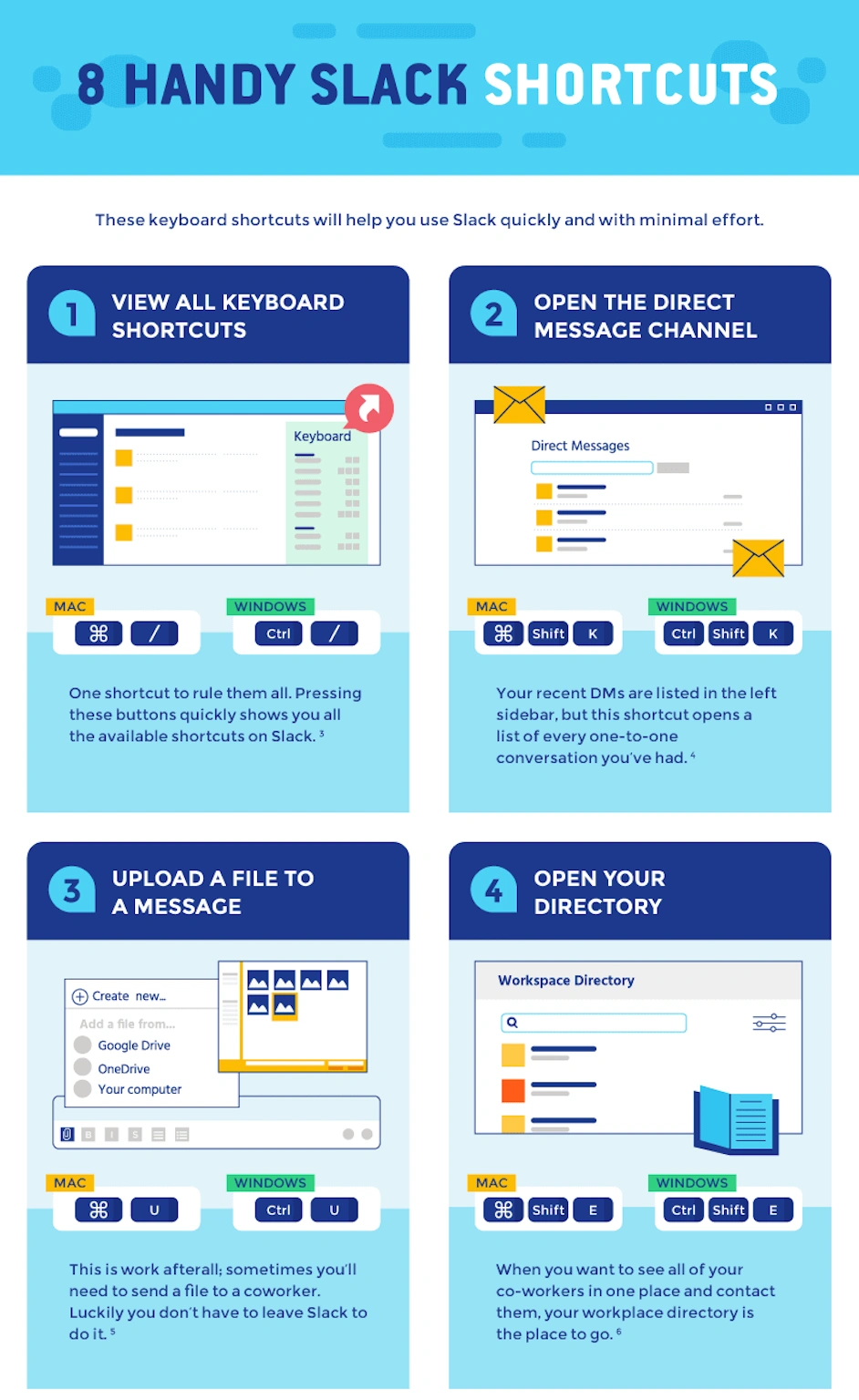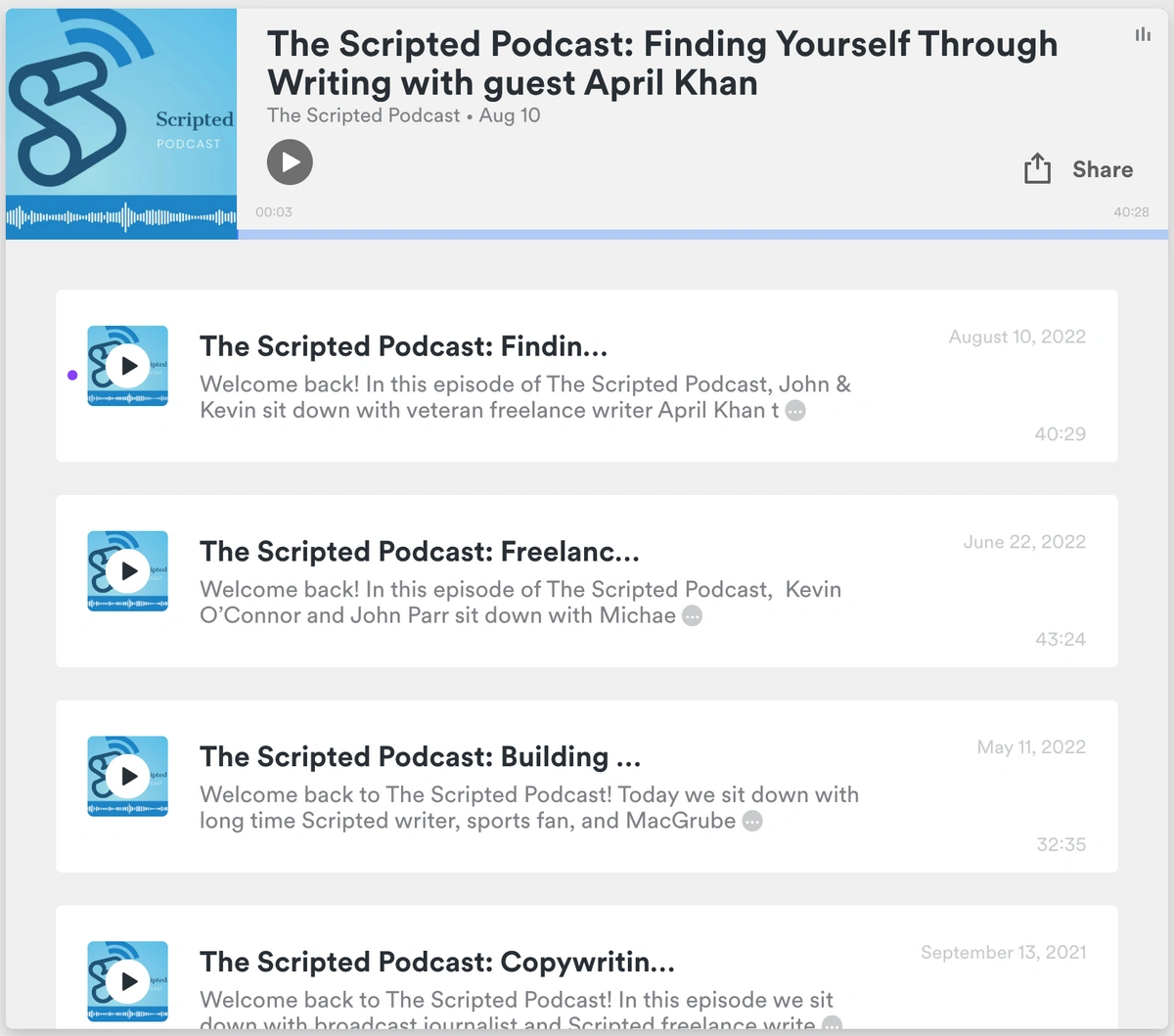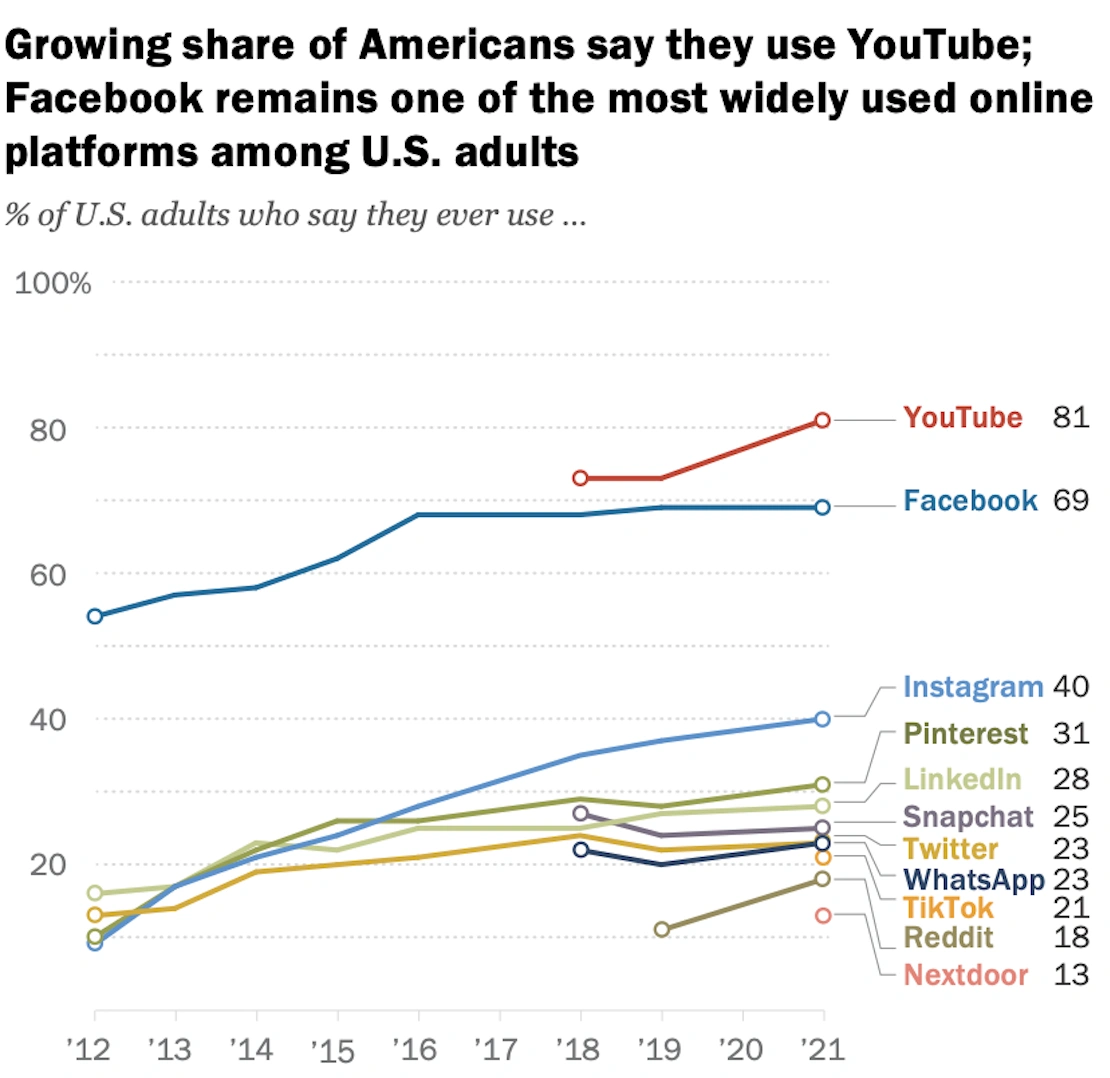- Blog Home
- Emily Chang
- The 6 Most Important Content Strategy Scoping Questions
The 6 Most Important Content Strategy Scoping Questions

Effective content marketing strategies need to follow emerging trends to reach and convert target audiences. As your business grows, however, you need to focus on managing the scope of your campaigns. Talking to a content strategy consultant can help. If you haven’t reached that point yet, you can start by asking the following content strategy scoping questions.
They should help you understand your objectives more clearly and discover opportunities for improvement.
(Of course, trends always matter. Stay ahead of your competitors by learning about content strategy predictions for 2023.)
1. Who Is My Audience?
You don’t want to waste time and money targeting consumers and businesses that aren’t interested in your products. Before you increase the scope of your content strategy, take a granular approach to understanding your target audience.
Critical demographics to consider include:
- Age
- Gender
- Income level
- Education level
- Occupation
As you concentrate your marketing efforts on core prospects, you should also consider aspects like:
- What types of content the members of your target audience respond to
- The other interests your target audience has
- Who influences how your audience members think
- What barriers could prevent your audience from accessing your product
Make sure you collect data about the people and businesses interacting with your brand. The more you know about them, the more nuance you can add to make your marketing more effective.
2. What Types of Content Will My Audience Respond to?
Content marketing involves much more than publishing a blog post every week. Today’s content marketing consultants encourage brands to use multiple types of content to reach audiences. The following options stand out as content types to explore.
Blog posts
Blog posts can fill many needs. Use them to:
- Help potential customers understand how they will benefit from your products
- Teach existing customers how to get more from the products they own
- Increase traffic to your website, which should help drive sales
- Tell people more about your company
- Answer common questions
- Establish your company as an industry expert
- Help consumers choose products that match their needs
Videos
Video content can appeal to a broad range of people who don’t enjoy reading long blog posts or who learn better from video than text. Just look at how popular YouTube has become around the world. The video-streaming platform has:
- 467 million users in India
- 247 million users in the US
- 139 million users in Indonesia
- 138 million users in Brazil
Worldwide, the platform has over 2.56 billion users.
By including video in your content strategy, you can:
- Interact with a large audience (or focus on a niche audience)
- Showcase your products
- Show step-by-step directions that teach people how to use your products
- Connect with popular channels and influence their audiences
- Create more backlinks to your website and landing pages
- Drive traffic to your website and ecommerce store
Infographics
Infographics can give consumers meaningful information in a quick, digestible way. You probably still want to publish blog posts and articles that use data to market your products and services. However, adding an infographic to the content gives people a much easier way to find the information that applies to them. If they want to learn more, they can read other materials. It is also a piece of content that is sharable and can gain social traction.
Long-form articles
Long-form articles tend to get high search engine rankings. They can also establish your brand as an industry authority. Make it easy for search engine crawlers and human readers to find important information by:
- Adding a table of contents with jump links to the top of your articles
- Following SEO best practices by including bullet lists, headers, subheaders, image alt tags, and meta descriptions
- Breaking content into short sections that people can skim quickly
- Linking to posts, landing pages, and other publications that will help readers learn more
Social media posts
Social media has become a critical part of content marketing. The internet is mind-boggling large, so it’s unlikely that someone will stumble on your website. Social media gives you opportunities to stand out and direct people to your site.
Make sure social media posts represent your brand identity. If your company has a fun personality, keep posts light and entertaining. If you work in a serious industry, use a professional tone and share important information.
White papers
White papers do at least two things very well. They establish your business as an industry expert and give potential clients a lot of information they can use to determine whether they want to use your products.
A good white paper requires a lot of research and writing. Make sure you hire a professional white paper writer who can balance objective information with subtle calls to action.
Case studies
Case studies help show potential clients how other businesses have benefited from your products. They are social proof that gives customers context while also giving them confidence in your brand and services. Case studies are great motivators for customers to purchase your product or service and they are also great objection removers. Case studies were ranked 'very important' by 52% of B2B buyers while evaluating vendors. They usually work best for B2B content marketing that converts businesses into enterprise clients.
Personalized emails can play an important role in content strategy scoping. You can use them to welcome new customers, re engage with shoppers who haven’t bought from you recently, and let customers know about upcoming deals.
Many email marketing platforms let you create content and set triggers. When a trigger occurs, the appropriate email gets sent to the lead or customer. For example, when someone signs up for your newsletter, the platform will automatically send a welcome email.
Popular email platforms include:
Podcasts
The popularity of podcasts has grown significantly over the last two decades. In 2006, only 22% of US adults listened to podcasts. By 2021, about 78% of American adults listened to them.
Podcast work well for:
- Improving your brand’s visibility within your industry
- Establishing your brand as an industry leader
- Engaging consumers and businesses regularly
- Directing more traffic to your website and product pages
- Strengthening your brand identity
3. Where Can I Reach My Target Audience?
When you hire a content marketing consultant, they will want to define your target audience and determine the best places to connect with those people. A marketing consultant will take a deep dive into demographics and engagement statistics. You can make some educated guesses about where to connect with your target audience without doing a lot of research, though. Start by reviewing reliable studies about how different age groups use the internet.
Pew Research Center shows that more than 80% of US adults use YouTube and nearly 70% use Facebook. If you have a broad audience, you can probably reach them through these channels.
Targeting people under 30 might require a different approach, though. For that audience, you should explore channels like:
- TikTok
- Snapchat
About half of American adults under 30 use TikTok. They’ve even started using the video-focused social media platform to keep up with news.
4. How Can I Keep Branding Consistent Across Channels?
More likely than not, your content marketing strategy will involve multiple types of content published on various channels, including your blog, social media sites, and email. As the scope grows, you might find it increasingly difficult to maintain coherent branding.
You can position your campaigns for better brand consistency by creating a style guide and library of creative assets. Make sure you include visual and language assets, such as:
- Your logo
- A color palette
- Fonts
- Images
- Phrases
- Word and grammar choice
- Content tone
Once you have all of the assets you plan to use, you can put them into a digital asset management (DAM) system. This helps ensure that everyone working on your campaigns only uses approved visuals and phrases.
If you don’t already have a DAM, you can explore options like:
5. How Do I Want Consumers to Respond?
Not every piece of content should try to convert consumers into buyers. Ask how you want consumers to respond to each piece of content before you finalize your campaign strategy. That way, you can use messages to:
- Grow brand awareness and become more familiar to potential customers
- Establish your products as strong alternatives to existing options
- Increase your company’s social media following, which could later lead to higher conversions
- Get more people to sign up for your email newsletters
Consider how each piece of content moves people through the sales funnel, and adjust your calls to action to meet those goals.
6. What KPIs Should I Track to Measure Success?
KPIs can help you measure the success of your content strategy. Tracking too many KPIs, however, can create a lot of noise that makes useful insights harder to find. Decide what success looks like for your content marketing strategy and choose KPIs that let you measure success objectively.
Some of the KPIs you might track include:
- Customer acquisition cost (CAC)
- Return on investment (LTV)
- Return on ad spend (ROAS)
- Conversion rate
- Website traffic
- Follower growth
- Sales qualified leads (SQL)
- Social media engagement
HubSpot has a longer list of KPIs to consider. Don’t feel like you need to use them all. Some will matter much more than others.
Find Expert Writers for Your Content Marketing Campaigns
No matter which content strategy scoping questions you ask, you need professional writers to create your content. Scripted can connect you with industry experts capable of writing everything from exciting social media posts to detailed white papers.
Depending on the size of your business and upcoming marketing campaigns, you might want to choose a self-directed plan or get help from a dedicated account manager who can assist with every step in the content production process. Schedule a time to talk to one of our Content Strategists. Scripted’s account managers and writers have experience working with diverse industries, so you will find an option that works well for your business.






